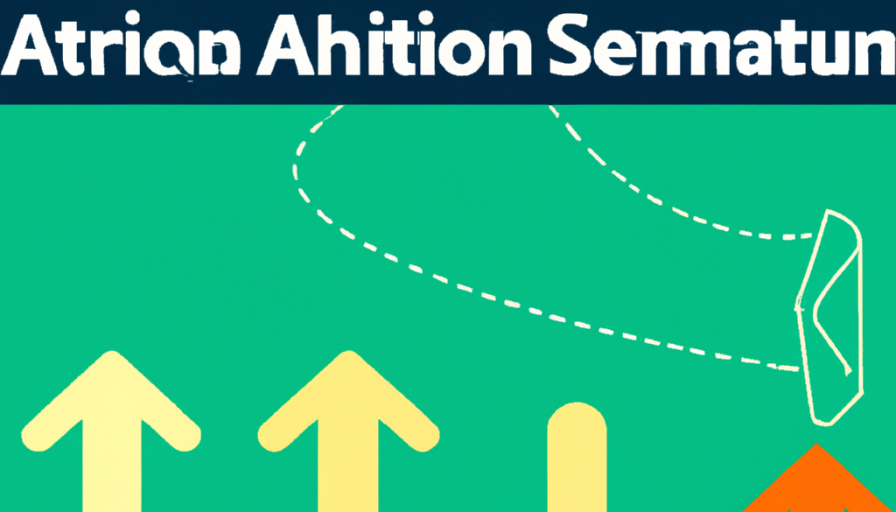AI Marketing Automation for Conversion Optimization
In today’s digital world, businesses are constantly striving to improve their conversion rates and boost their online presence. One effective way to achieve these goals is by leveraging the power of AI marketing automation. By utilizing artificial intelligence technologies, businesses can streamline their marketing efforts, optimize their conversion rates, and ultimately drive more sales. In this article, we will explore the various aspects of AI marketing automation and how it can revolutionize your conversion optimization strategies.
What is AI Marketing Automation?
AI marketing automation refers to the use of artificial intelligence technologies to automate various marketing tasks and processes. It involves the use of algorithms and machine learning models to analyze data, make predictions, and take proactive actions based on user behavior and preferences. From email marketing automation to personalized advertising campaigns, AI marketing automation can greatly enhance the efficiency and effectiveness of a company’s marketing efforts.
Benefits of AI Marketing Automation
-
Improved Personalization: AI marketing automation enables businesses to deliver highly personalized experiences to their customers. By analyzing user data and behavior patterns, AI algorithms can tailor marketing messages and offers to match individual preferences, increasing the likelihood of conversion.
-
Real-time Data Analysis: With AI marketing automation, businesses can gain valuable insights into customer behavior and preferences in real-time. This allows marketers to make data-driven decisions and quickly adapt their strategies to optimize conversion rates.
-
Optimized Content Marketing: AI-powered tools can analyze vast amounts of data to identify trends, keywords, and customer preferences, helping businesses create engaging and relevant content. By delivering valuable content to the right audience at the right time, businesses can attract and retain more customers.
-
Enhanced Lead Nurturing: AI marketing automation can help businesses nurture their leads more effectively. By tracking user interactions and engagement, AI algorithms can identify the most promising leads and deliver personalized follow-up messages or recommendations to move them closer to conversion.
-
Efficient Customer Support: AI-powered chatbots and virtual assistants can provide instant and accurate responses to customer inquiries, improving customer satisfaction and reducing the workload on customer support teams.
Implementing AI Marketing Automation
To successfully implement AI marketing automation for conversion optimization, businesses should follow these key steps:
1. Set Clear Goals
Before diving into AI marketing automation, it is essential to define clear goals and objectives. Whether it’s increasing website conversions, improving lead generation, or enhancing customer engagement, having a clear vision will help guide the implementation process.
2. Collect Relevant Data
To leverage the power of AI, businesses need to collect and analyze relevant data. This includes customer behavior data, demographic information, purchase history, and other relevant metrics. By gathering comprehensive data, businesses can better understand their audience and make informed decisions.
3. Choose the Right AI Tools
There are numerous AI marketing automation tools available in the market. It is crucial to evaluate and select the tools that align with the business’s goals and requirements. Some popular AI tools for marketing automation include chatbots, predictive analytics software, and recommendation engines.
4. Automate Marketing Processes
Once the AI tools are in place, businesses can automate various marketing processes such as email marketing, social media scheduling, and personalized content delivery. By automating repetitive tasks, businesses can save time and resources, allowing marketing teams to focus on more strategic initiatives.
5. Analyze and Optimize
Continuous analysis and optimization are fundamental to the success of AI marketing automation. By monitoring key metrics and performance indicators, businesses can identify areas for improvement and make data-driven adjustments to their marketing strategies.
Case Study: Company XYZ’s Success with AI Marketing Automation
Company XYZ, an e-commerce retailer, implemented AI marketing automation to optimize their conversion rates. By leveraging AI algorithms and predictive analytics, they gained valuable insights into their customers’ preferences and behavior patterns. As a result, they were able to personalize their marketing messages, tailor their product recommendations, and optimize their website’s user experience.
Through AI-powered chatbots, Company XYZ improved their customer support process, reducing response times and enhancing customer satisfaction. They also implemented automated email marketing campaigns based on customer segmentation, resulting in a significant increase in email open rates and click-through rates.
Overall, Company XYZ’s conversion rates increased by 30% within six months of implementing AI marketing automation. They also saw a substantial improvement in customer retention and loyalty.
Conclusion
AI marketing automation has the potential to revolutionize conversion optimization strategies for businesses of all sizes. By leveraging AI algorithms and machine learning models, businesses can deliver highly personalized experiences, analyze real-time data, optimize content marketing, enhance lead nurturing, and provide efficient customer support. By following the key steps of goal setting, data collection, tool selection, process automation, and continuous analysis, businesses can unlock the full potential of AI marketing automation and drive significant improvements in their conversion rates.


